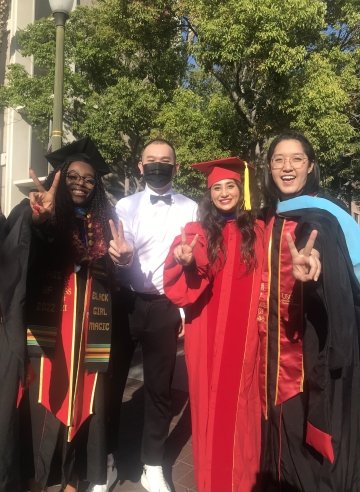During the last class of each semester, after my students wrap up their coursework and we look back on our time together throughout the term, I cannot help but be in awe of all that my wonderful students have accomplished. I also cannot help but wonder what their futures may hold for them. Some might end up teaching for decades, some might teach for a few years or even months, and then switch to other careers as the human-made world keeps on putting immense amounts of pressure on some of the most essential treasures: teachers and the art of teaching and learning.

As I take one of the last looks at my students before we end the term, I take a deep breath and try to imagine all of their professional futures to be fulfilling and fruitful. I have taught internationally for over 22 years, the last 14 years of which in higher education and teacher training. My career as an educator and researcher has been full of ups and downs, tears and laughter, and I hope my students’ careers will be more upward thrills than downward horrors.
Over the years, I have seen family members and friends take the Hippocratic oath at their graduation ceremonies in countries around the world, and I have always appreciated it deeply. Inspired by Hippocrates and his writings, the Hippocratic oath is an oath of ethics new physicians take. It requires physicians to swear to uphold ethical standards in the highest regard while treating patients throughout their careers. After searching for something to mark each course’s end and acknowledge the future journey teachers are about to embark on, I developed “The Hippocratic oath for current and future teachers.”
Before I say goodbye to my students, I share this oath, which I have adapted from various versions of the modern Hippocratic oath:
|
The Hippocratic oath for current and future teachers I swear to fulfill, to the best of my ability and judgment, this covenant: I will respect the hard-won scientific gains of those teachers/researchers in whose steps I walk and gladly share such knowledge as is mine with those who are to follow. I will apply, for the benefit of the students, all measures which are required, avoiding those that may harm my students. I will remember that there is art to teaching as well as science and that warmth, empathy and understanding are also equally important. I will not be ashamed to say “I don’t know,” nor will I fail to call in my colleagues when the skills of another are needed. I will respect the privacy of my students, for their problems are not disclosed to me that the world may know. I will learn and grow with my students as I improve my teaching skills and will forgive myself for shortcomings. I will remember that I remain a member of society, with special obligations to myself as well as all my fellow beings, and I will take care of myself so that I can take care of my students and others as much as possible. If I do not violate this oath, may I enjoy life and art, be respected while I live and be remembered with affection thereafter. May I always act so as to preserve the finest traditions of my calling, and may I long experience the joy of teaching those who seek my help and guidance. |
After the students and I finish looking over the lines, we sometimes reflect on what our paths have been like up to this point and the possibilities for our futures. We share contact information that is not solely connected with one university or institution to make sure we stay in touch, even when life might take us in different directions.

As Antoine de Saint-Exupéry wrote in The Little Prince in a conversation between a young, wandering prince from a small asteroid called B-612 and a flower with three petals that the prince meets in a desert, humans are always in transition, “But you never know where to find them. The wind blows them away. They have no roots, which hampers them a good deal.”
Sometimes, I hear back from some of my students years or even decades later; sometimes I don’t hear from them at all, but one thing that remains the same for all of us is our belief that teaching is truly a work of heart and learning is an inseparable part of the human experience. May the path of teaching be remarkable for all of our current and future teachers, and may the path of learning be limitless for all of us residents of planet Earth and beyond.





